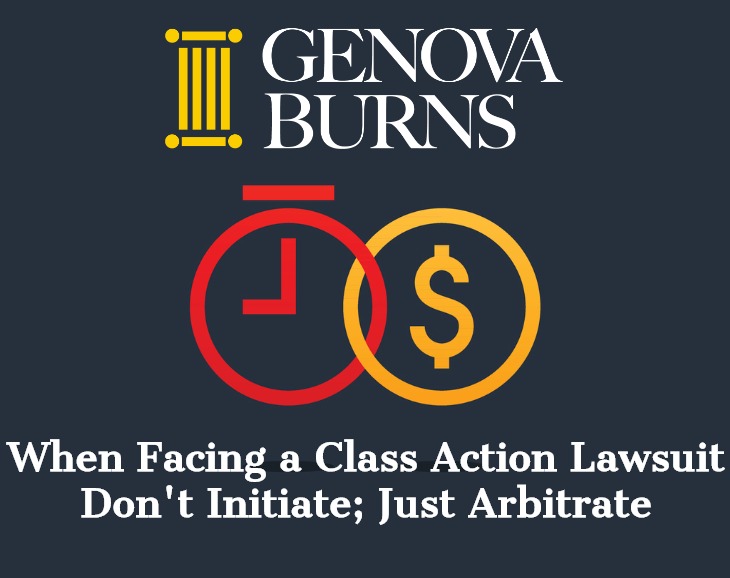When Facing a Class Action Law Suit - Don't Initiate; Just Arbitrate
June 23, 2020
On Monday, a New Jersey federal judge ruled that 151 plaintiffs in a FLSA collective action against Francesca’s must arbitrate its wage and hour claims. Notably, the arbitration agreements were signed at varying points in time. While some of the agreements were signed by plaintiffs before the litigation began, other putative plaintiffs were presented with and signed the agreements during the pendency of the litigation. Moreover, after the litigation was commenced, Francesca’s presented all new hires with an arbitration agreement that included the arbitrability of wage and hour claims.
The court ruled that the arbitration agreements were enforceable in all three circumstances. The court easily dispensed of the plaintiffs’ argument that arbitration agreements signed by new hires should be unenforceable, noting that the new hires had not yet worked for Francesca’s at the time the agreements were signed, and therefore could not be considered class members or putative class members. With respect to arbitration agreements that were presented to Francesca’s existing employees after the litigation began, the court rejected the plaintiffs’ arguments that they constituted improper contact with putative class members. The court concluded that employers may present existing employees with arbitration agreements, even if a wage and hour litigation has commenced, as long as the communications are not “abusive” or “undermines or contradicts the court’s own notice to prospective plaintiffs.” Here, because the arbitration agreements were presented to existing employees before conditional certification of a class was granted, the court found the communications to be permissible.
Moreover, although Francesca’s filed its motion to compel arbitration in October 2019, approximately six months after the close of the notice period for putative plaintiffs to opt into the action, the court held that the passage of time, standing alone, did not waive Francesca’s right to arbitrate the wage and hour claims. Next, the court rejected the plaintiff’s arguments that, because they had no memory of signing the arbitration agreements, there was a factual dispute as to whether they assented to the agreements. Because discovery revealed “that each employee logged in using their personal account – or, for new employees, using a unique identifier sent to their email – to execute the arbitration agreement,” the court concluded that “parties are presumed to have knowledge of contracts they have signed.” Finally, because the arbitration agreements clearly waived any right to proceed on a class-wide basis, the court rejected the plaintiffs’ claim that they should be permitted to arbitrate their claims as a class, and ordered the arbitrations to proceed on an individual basis.
This decision is an important lesson to employers that responsibly rolled out arbitration agreements will be enforceable, assuming employers did not engage in inappropriate communications, both before and after a wage and hour litigation is commenced.
To discuss implications of this ruling, please reach out to Harris S. Freier, Partner in the firm's Employment Law & Litigation Practice, via email or Dina M. Mastellone, Partner and Chair of the firm's Human Resources Counseling & Compliance Practice, via email or call 973.533.0777.
Tags: Genova Burns LLC • Harris S. Freier • Dina M. Mastellone • James W. Sukharev • Class Action • Wage & Hour • FLSA

